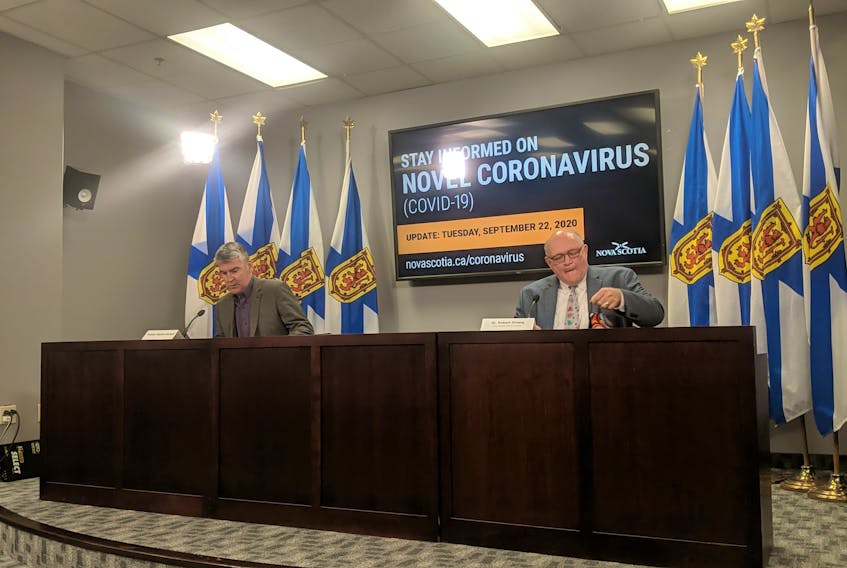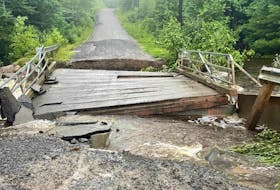Nova Scotia is reporting one new confirmed COVID-19 case.
The new case is an essential worker in the Western Zone, which includes the Annapolis Valley, South Shore and South West, the Health Department said Tuesday.
Public health is investigating the case, which is related to travel outside Canada. It's the only active case in the province.
There is also one person hospitalized in the intensive care unit in relation to COVID-19.
The announcement comes after Nova Scotia went two weeks without identifying a confirmed case. On Monday, the Department of Health and Wellness said a Dalhousie University student received an indeterminate COVID-19 test result. The student was self-isolating after travelling outside the Atlantic bubble.
Public health is doing further assessment to determine whether the student has COVID-19 symptoms or has had them in the past. The case wasn't added to the total number of positive cases in the province.
To date, Nova Scotia has 1,087 positive COVID-19 cases, 88,459 negative test results, 1,021 resolved cases and 65 deaths. Nova Scotia Health Authority’s labs conducted 681 tests on Monday.
Nursing home restrictions relaxed
The province also announced Tuesday that long-term-care residents would be allowed day visits outside the facility as early as Sept. 28.
“We know that some residents and families have been wanting to connect in ways that they could before the pandemic,” said Dr. Robert Strang, Nova Scotia’s chief medical officer of health, at a news briefing in Halifax.
“We have to remain very cautious and careful protecting those most vulnerable in our communities. But we've been watching the epidemiology carefully and making decisions incrementally to relax the restrictions in those facilities and then allowing time for facilities and families to adapt.”
More details on the long-term-care changes can be found here.
Although Sept. 28 has been set as the earliest date that day visits can occur, some facilities might not have processes in place at that time.
Strang also addressed what he called confusion over self-isolation orders related to somebody waiting for COVID-19 test results. Although the person waiting for results must self-isolate, close contacts such as household family members do not have to do so.
“They can still go about their activities,” he said. “We keep hearing lots of stories about people saying, ‘Well now my child is home waiting for the test result, I can't go to work.’ That's not true.”
Strang couldn’t provide details when asked about the testing wait list, such as the current number waiting or how many school-aged children are on the list.
There also have been complaints about delays in getting a response from the 811 phone line on COVID-19 inquiries. Public health asks people who believe they might have the virus to first take the 811 online questionnaire and if they meet the criteria, to call 811 for further assessment.
Strang said there are plans to hire additional 811 staffers and his department is looking into finding other ways to facilitate testing.
Anyone who has is currently experiencing or has experienced a new or worsening cough and/or fever, chills or sweats should take the 811 survey.
Anyone experiencing two or more of the following symptoms (new or worsening) should also visit the website: sore throat, runny nose or nasal congestion, headache and shortness of breath.
Nova Scotia has seen the lowest COVID-19 rates in the country but the premier warned that doesn’t mean people can be complacent aboutocial distancing, hand hygiene and the need to wear face masks indoors when social distancing isn't possible.
“I'm not trying to frighten anyone here in our province, but this is a reality: COVID is not going away and we need to be prepared for a second wave or resurgence,” McNeil said.









